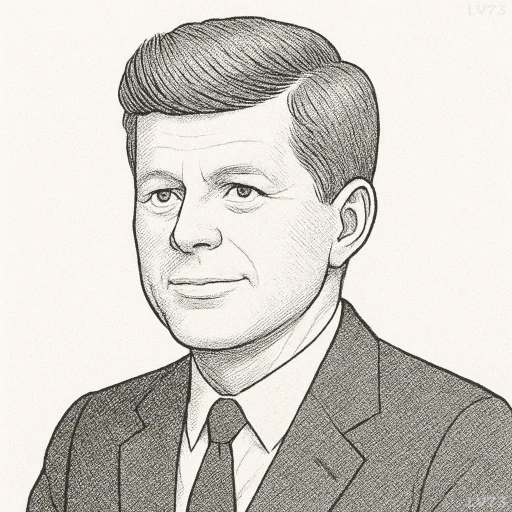“To state the facts frankly is not to despair the future nor indict the past. The prudent heir takes careful inventory of his legacies and gives a faithful accounting to those whom he owes an obligation of trust.”

- May 29, 1917 – November 22, 1963
- American
- Politician
table of contents
Quote
“To state the facts frankly is not to despair the future nor indict the past. The prudent heir takes careful inventory of his legacies and gives a faithful accounting to those whom he owes an obligation of trust.”
Explanation
In this thoughtful statement, John F. Kennedy emphasizes the importance of honesty and accountability when addressing both the present and the past. By advocating for the frank presentation of facts, Kennedy is not suggesting that we should succumb to pessimism or ignore the possibility of a better future. Rather, he argues that acknowledging reality—whether it involves challenges, mistakes, or limitations—is a necessary part of making responsible decisions for the future. The phrase “not to despair the future nor indict the past” conveys that truth-telling is not an act of defeatism; it is simply an essential step toward understanding and improving the world. This emphasis on honesty and clarity reflects Kennedy’s belief in the importance of confronting difficult truths in order to move forward with integrity.
Kennedy extends this idea further with the metaphor of the “prudent heir.” He likens a nation or leader to an heir who inherits the legacies of past generations. Just as an heir must acknowledge and evaluate the estate they have inherited, so too must contemporary leaders evaluate the legacies of past decisions, both good and bad. This “careful inventory” of legacies involves not only recognizing the achievements and successes but also understanding the challenges, mistakes, or unresolved issues left behind. It is a call for leaders to act with a sense of responsibility to those who have entrusted them with power and to ensure that their actions align with the trust placed in them. Kennedy’s message is about duty—a leader must fulfill their obligations to both the past and future, acknowledging where they stand and how they will act moving forward.
Kennedy’s call for a faithful accounting of legacies remains relevant today. In a world marked by political polarization, historical reckoning, and debates over how to address past injustices, the need for honest dialogue about history has never been greater. Whether addressing climate change, economic inequality, or historical wrongs such as racial injustice, leaders must take stock of the legacies they inherit and recognize the obligations they bear to those affected by past decisions. Moreover, this quote speaks to the ethical responsibility of leaders not to manipulate or obfuscate the truth, but to honestly assess the challenges they face and openly share those assessments with the people they serve. Kennedy’s statement encourages transparency, not as a sign of weakness, but as a reflection of strength and trustworthiness in leadership.
Would you like to share your impressions or related stories about this quote in the comments section?


